Vermont’s GMO Labeling Law Is Now In Effect. Here Are The Labels The Senate Is Trying To Get Rid Of
It’s July 1, 2016, which means that Vermont’s controversial rules for labeling certain products containing genetically modified ingredients (GMOs) is now in effect. With both the supermarket industry and agribusiness-backed Senators trying to defeat this law in court and on Capitol Hill, we took a field trip to Vermont this morning to see just what the labels look like in the real world.
The final rule [PDF] requires labels on or near various types of packaged and unpackaged foods. It does, however, provide manufacturers with what is effectively a few months grace period, as any packaged, processed foods currently without the label will — until the end of the year — be presumed to have been produced before the July 1 deadline. So if a Vermont shopper sees a bag of potato chips in December that doesn’t have the label, the producer of those chips would not be in violation of the law.
That said, we did find a number of products on store shelves that are already in compliance with the rules.
There were, as we expected, products from companies like PepsiCo’s Frito-Lay group that began making this change on a nationwide basis a couple of months in advance of the July 1 deadline:
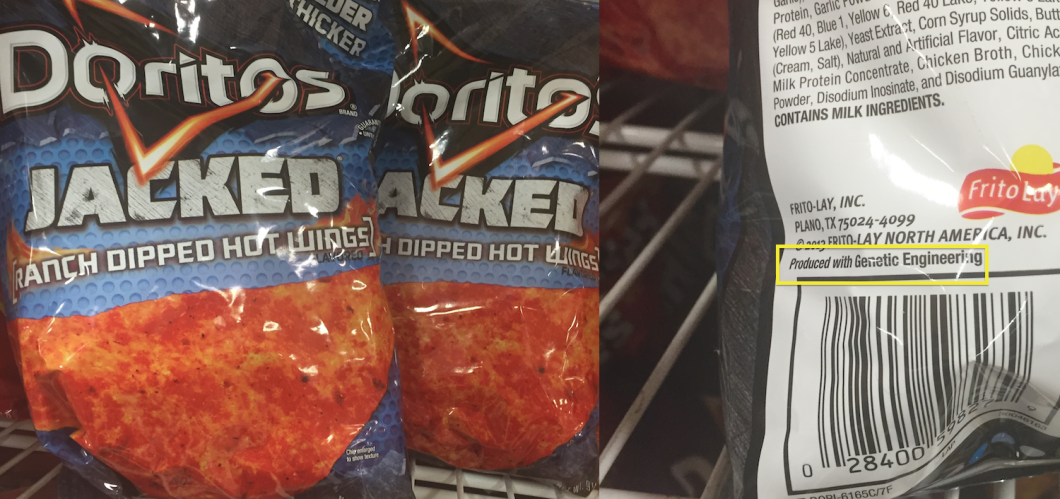
Another company that made the nationwide change earlier this year is Campbell Soup, so we were not surprised to see some labeled Spaghetti-Os. Likewise, General Mills jumped on the labeling wagon months ago, so its Progresso soups are already labeled:
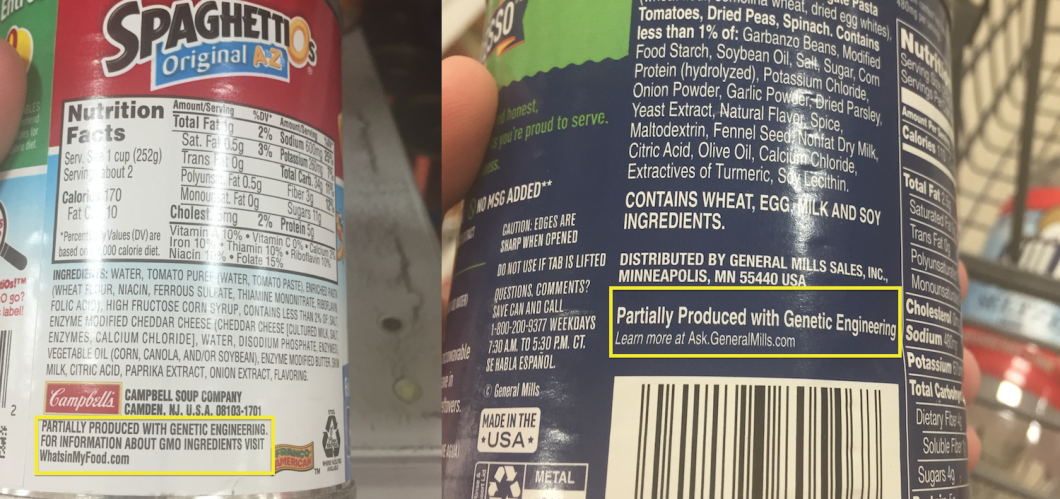
We also spotted the label on General Mills’ Grands biscuits:
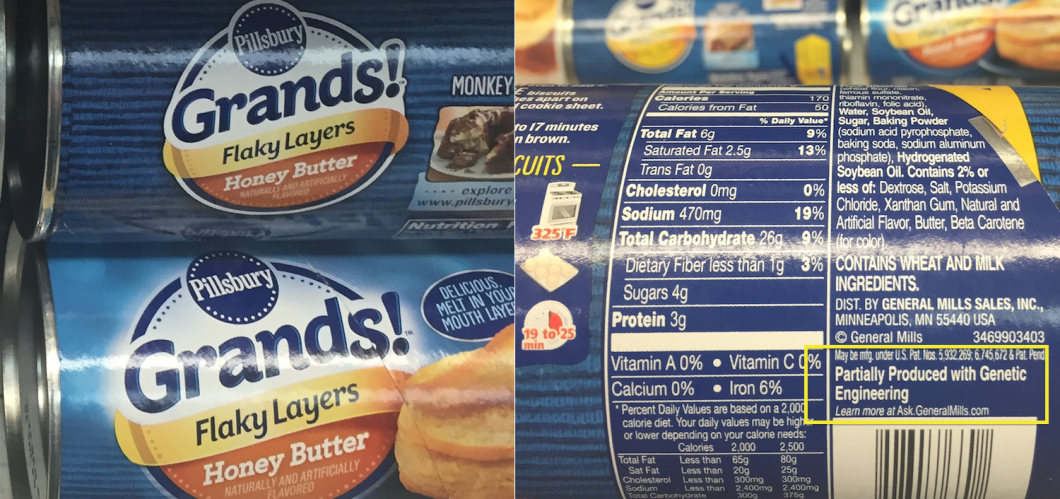
Baked-good giants Bimbo is also already on board in Vermont, with labels on its high-profile brands like Thomas’s, and lesser-known lines like Freihofer’s:
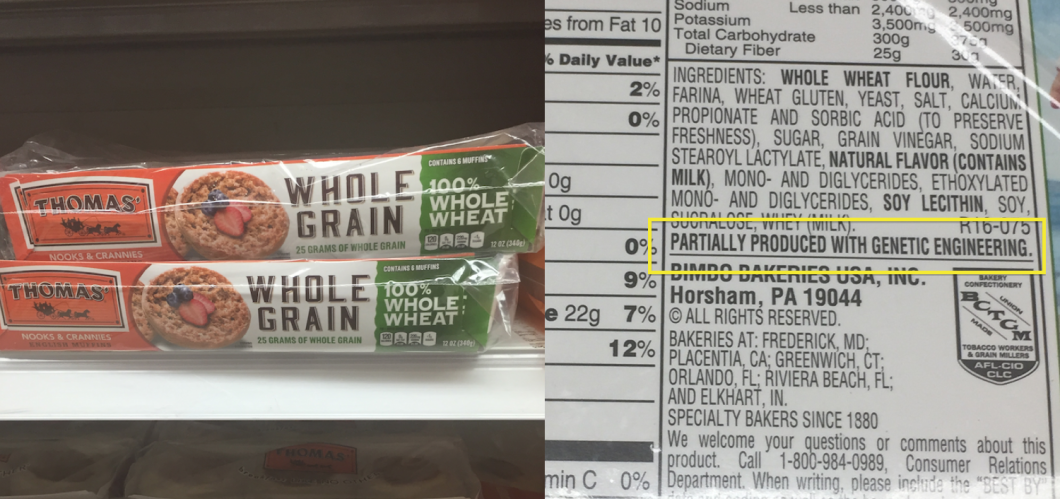
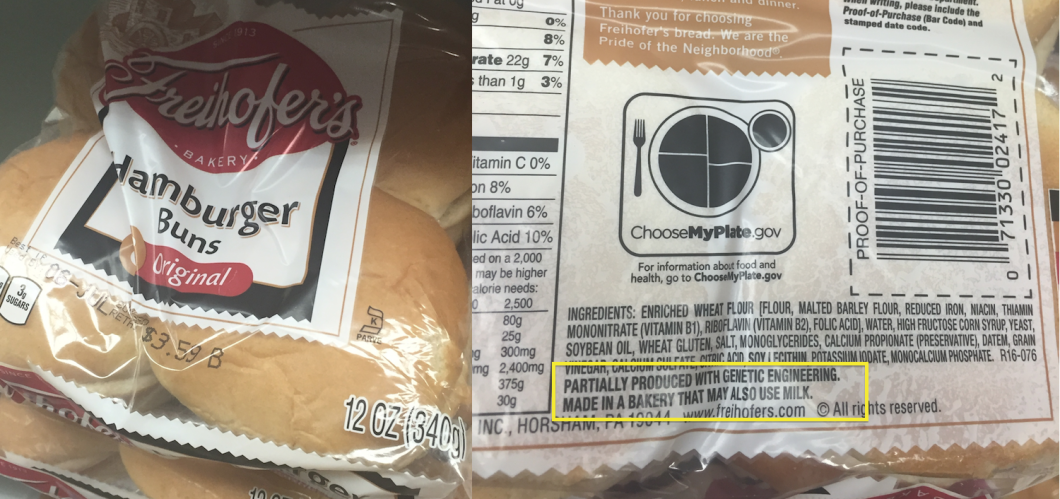
Over in the frozen food section, Nestle-owned Stouffer’s is labeling its pizza products in compliance with the new rule:
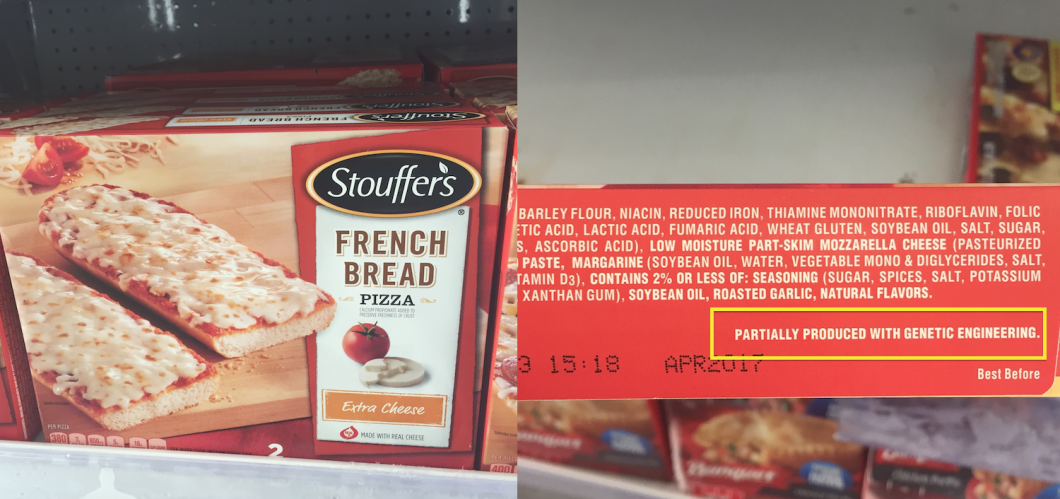
As you’ve probably noticed, most of these notices are rather small. In some cases, we had to spend a little time looking for the relevant line of text. Interestingly, the label that was the most difficult to read was also the label written in the largest type. This squeeze bottle of Smucker’s doesn’t have the GMO label printed as part of the nutrition info or ingredients like most of the other products. Instead, it’s printed on at the plant at the same time the product is stamped with its “Best if used by” date:
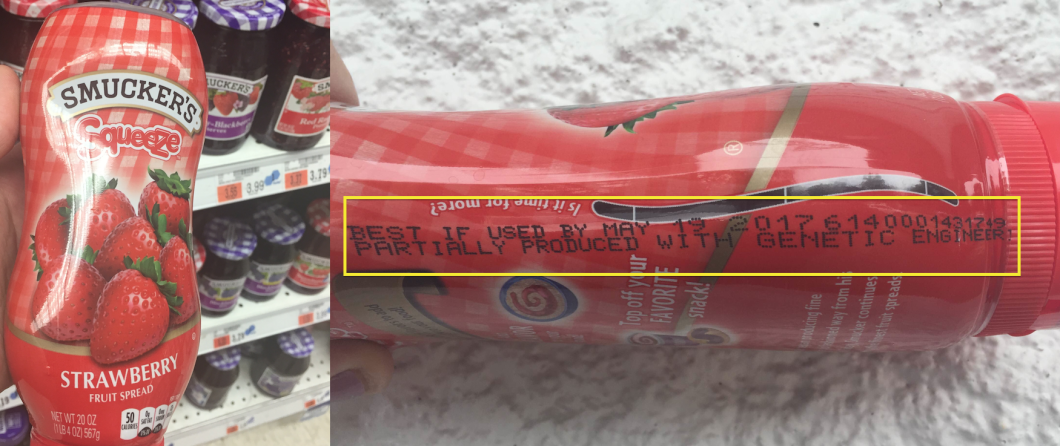
Printing the label in this fashion allows a company to comply with the Vermont law but avoid having to make this disclosure on all products nationwide. It’s an interesting concept; we’ll be curious to see if other’s follow the lead of J.M. Smucker on this one.
It wasn’t just big national brands that had the labels. Price Chopper’s store-brand bread is already labeled, though it’s a bit hard to read because of the packaging:
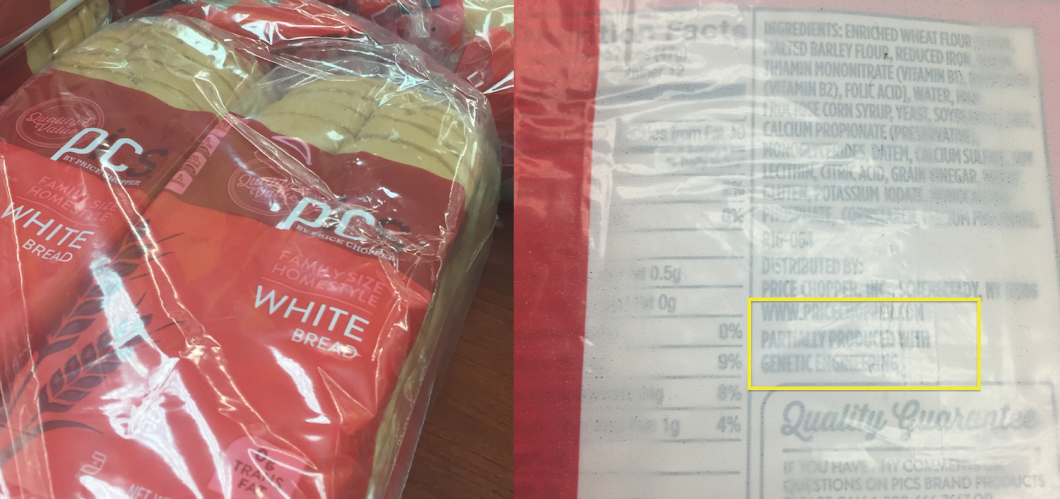
And over at Hannaford, the little line of text is on many, if not all, packaged store-made foods like pot pies, roast chickens, and baked goods:

We also found this adorable cookie from a smaller company that is already in compliance with the Vermont rule:
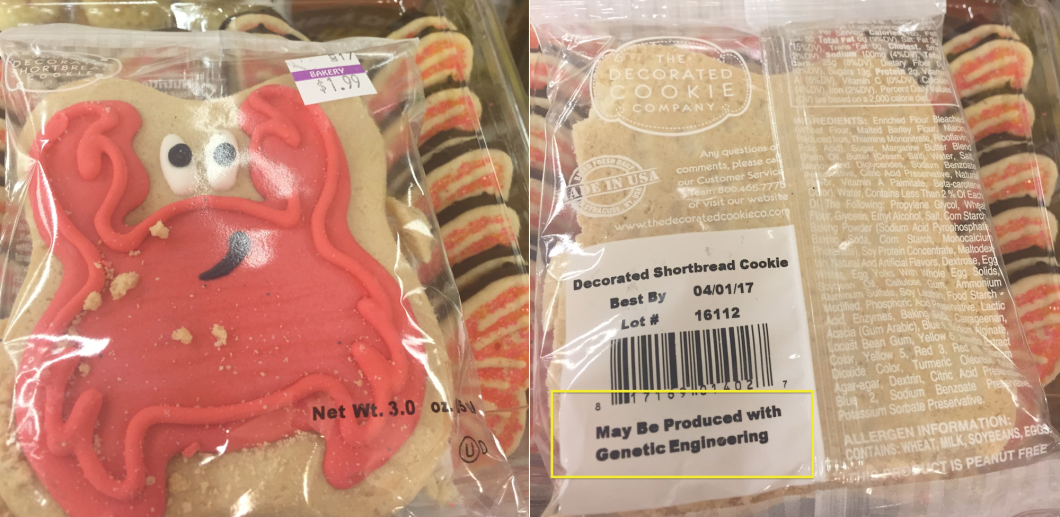
As mentioned above, the Vermont rule is under attack on both the legal and legislative fronts. It’s been two years since a grocery industry trade group sued to stop the labeling law from being enacted, yet the Second Circuit Court of Appeals has yet to issue a decision on the matter, even though it heard oral arguments nearly eight months ago.
More recently, there’s been a bipartisan effort — led by two senators who have received a total of more than $2.1 million from agribusiness donors in just this election cycle — to push through new legislation that would:
• Override the Vermont law and any other state rules on GMO labeling.
• Eventually — in at least two years; likely more — create a national standard for labeling that states could not attempt to make more strict at the local level.
• Create a standard that would not require any disclosure on the affected products. Instead, the disclosure could be nothing more than a barcode, text website link, or phone number.
Much like the earlier, failed so-called “DARK Act,” which would have created a voluntary labeling national labeling standard, this newest piece of legislation was able to skip much of the usual legislative red tape by having Senate Majority Leader Mitch McConnell present it [PDF] as an amendment to an earlier Senate bill to defund Planned Parenthood (a bill that was originally intended to reauthorize the National Sea Grant College program). The amendment wiped out all the existing text of the previous legislation, including the DARK Act text, leaving only the new GMO labeling bill.
The new legislation sailed through its first major procedural test earlier this week, on a vote of 69-28. After the July 4th holiday, it’s expected that the Senate will take a cloture vote on whether to end debate on the bill; 60 votes would be needed for it to then move on for one final Senate vote.
This morning, our colleagues at Consumers Union wrote to members of the U.S. Senate, calling on the lawmakers to consider the ramifications of this legislation.
In addition to the previously mentioned concerns about overriding the Vermont law and creating a labeling standard that is nothing more than a website address, CU contends that the language of this legislation omits many types of genetically engineered (GE) food products.
“The bill’s definition of ‘bioengineered’ specifies that the bill applies to food ‘that contains genetic material that has been modified’ through in vitro rDNA techniques,” explains the letter. “This would likely leave out many highly processed foods from GE sources without detectable genetic material, such as refined sugars, high-fructose corn syrup, oils, or proteins from GE plants. Moreover, the definition would cover only food that ‘could not otherwise be obtained through conventional breeding or found in nature,’ which may be difficult to demonstrate for current GE products, if read literally, since the two main traits – resistance to the herbicide glyphosate and resistance to insect pests – involve moving genes from bacteria found in nature into food plants.”
Want more consumer news? Visit our parent organization, Consumer Reports, for the latest on scams, recalls, and other consumer issues.

